Choosing a hotel can be such a headache. Few travelers want to settle for a roach-infested room but many are also reluctant to part with, say, NT$10,000 to NT$20,000, for a place to stay. That's the old guest mentality. The Sheraton Taipei Hotel has spent NT$2.4 billion on renovations in anticipation of the new guest mentality: A hotel is more than just a place to stay.
While the Sheraton's outer appearance hasn't changed much, the renovations begun in April 2003 have just reached completion. There is a new lobby, new restaurants and a new look for the rooms themselves, including two floors of new "executive" rooms, claimed to be the best in Taipei.
Once known as the Lai Lai Sheraton, the 26-year-old hotel is within walking distance from the Executive, Control and Legislative Yuans and has gained a reputation over the years as a favorite hangout for politicians.
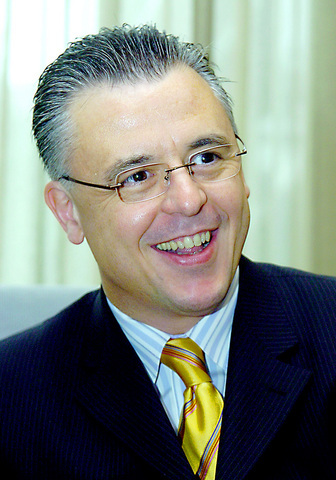
PHOTOS: SUNG CHI-HSIUNG, TAIPEI TIMES
Owned by the super-wealthy Tsai family, the Lai Lai became a hotbed of power and intrigue. In 1985, a Tsai-family financial scandal involving the Taipei Tenth Credit Cooperative and Cathay Plastics resulted in the hotel changing hands. In 2002, Tsai brothers Chen Yiang (
Austrian hotelier Josef Dolp was general manager of the hotel in the years leading up to the renovations. While they were underway, he served as general manager at the Sheraton in Xian, China. He returned to his post at the Sheraton Taipei this June.
"The Lai Lai Hotel had an old Chinese feel to it and the design was very local," said Dolp. "We did so much renovation that we also wanted to change the market mix and the kind of custo-mers we attract."
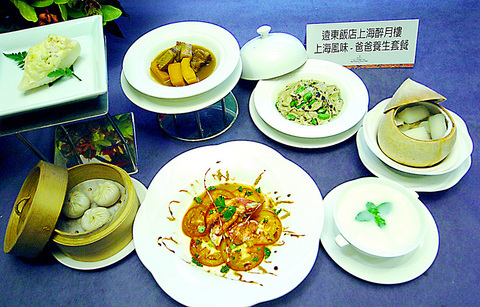
While Dolp acknowledged that his hotel's location meant political clientele would be a mainstay, he said the new target groups are international businesspeople and Taiwanese 30-somethings. This shift is reflected in the hotel's new look and feel, which is clean and structured, simple as opposed to busy, and focuses on functionality and timelessness. These are aesthetic virtues appreciated not only by international businesspeople, but also by young people, according to Dolp.
Owner Tsai Chen-yang and his wife Ellie Lai (
"Our hotel reflects the status quo of the story of Taiwan," Dolp said, pointing to the classical Japanese influence that is most apparent on the rigidly straight, elegant wood that lines bedroom walls.
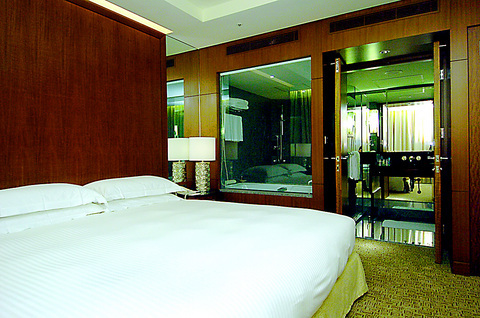
While a beautiful, comfortable interior is important, it is the process and the experience that will bring customers back and give the hotel a competitive edge, Dolp says.
The management has adopted an approach to service that centers on customer feedback instead of hotel traditions. While it is common practice for the bellboy to whisk away a guest's luggage the moment they check in, surveys revealed this to be an annoyance for many guests, especially businesspeople who want to have their work with them at all times.
The goal, Dolp says, is to make the hotel experience as efficient as possible while still maintaining a friendly, human touch. And despite the amount that was spent on upgrading the hotel's appearance, in the end it's the people and the experience that count for the most.
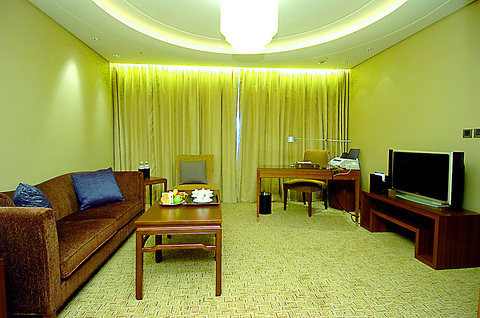
"It's like a one-night stand with a beautiful lady," Dolp said. "If you find out she's stupid, you won't sleep with her again. So we want to be a beautiful lady who is smart so you'll fall in love and come back over and over again."
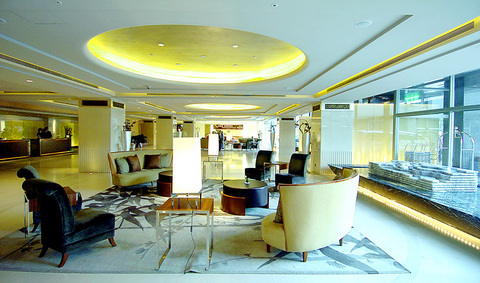

That US assistance was a model for Taiwan’s spectacular development success was early recognized by policymakers and analysts. In a report to the US Congress for the fiscal year 1962, former President John F. Kennedy noted Taiwan’s “rapid economic growth,” was “producing a substantial net gain in living.” Kennedy had a stake in Taiwan’s achievements and the US’ official development assistance (ODA) in general: In September 1961, his entreaty to make the 1960s a “decade of development,” and an accompanying proposal for dedicated legislation to this end, had been formalized by congressional passage of the Foreign Assistance Act. Two

Despite the intense sunshine, we were hardly breaking a sweat as we cruised along the flat, dedicated bike lane, well protected from the heat by a canopy of trees. The electric assist on the bikes likely made a difference, too. Far removed from the bustle and noise of the Taichung traffic, we admired the serene rural scenery, making our way over rivers, alongside rice paddies and through pear orchards. Our route for the day covered two bike paths that connect in Fengyuan District (豐原) and are best done together. The Hou-Feng Bike Path (后豐鐵馬道) runs southward from Houli District (后里) while the

On March 13 President William Lai (賴清德) gave a national security speech noting the 20th year since the passing of China’s Anti-Secession Law (反分裂國家法) in March 2005 that laid the legal groundwork for an invasion of Taiwan. That law, and other subsequent ones, are merely political theater created by the Chinese Communist Party (CCP) to have something to point to so they can claim “we have to do it, it is the law.” The president’s speech was somber and said: “By its actions, China already satisfies the definition of a ‘foreign hostile force’ as provided in the Anti-Infiltration Act, which unlike

Mirror mirror on the wall, what’s the fairest Disney live-action remake of them all? Wait, mirror. Hold on a second. Maybe choosing from the likes of Alice in Wonderland (2010), Mulan (2020) and The Lion King (2019) isn’t such a good idea. Mirror, on second thought, what’s on Netflix? Even the most devoted fans would have to acknowledge that these have not been the most illustrious illustrations of Disney magic. At their best (Pete’s Dragon? Cinderella?) they breathe life into old classics that could use a little updating. At their worst, well, blue Will Smith. Given the rapacious rate of remakes in modern